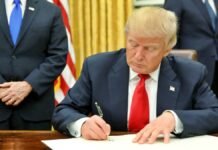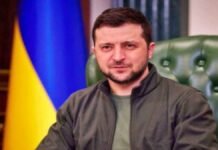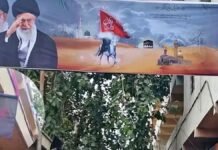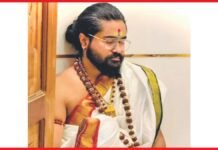
Key Points
- General Asim Munir, Pakistan’s army chief, revived the controversial two-nation theory, emphasizing deep differences between Hindus and Muslims as the basis for Pakistan’s creation.
- Munir urged all Pakistanis, especially overseas communities, to instill this narrative in future generations to preserve national identity.
- He issued a stern warning to Baloch insurgent groups, promising a decisive military response and declaring that “even ten generations of terrorists cannot harm Balochistan and Pakistan”.
- Munir praised the sacrifices of Pakistan’s armed forces and called for unity against terrorism, while also expressing solidarity with Palestinians in Gaza.
- The speech has sparked criticism for stoking religious and ethnic divisions and is seen as an attempt to rally nationalist sentiment amid ongoing unrest in Balochistan.
Islamabad: In a high-profile address at the Overseas Pakistanis Convention in Islamabad, Pakistan Army Chief General Asim Munir reignited the divisive two-nation theory, which underpinned the 1947 Partition of India. Munir asserted that Pakistanis are “fundamentally different from Hindus in religion, culture, traditions, thoughts, and ambitions” a distinction he described as the very foundation of Pakistan’s creation.
“Our religion is different, our customs are different, our traditions are different, our thoughts are different, our ambitions are different. That’s where the foundation of the two-nation theory was laid. We are two nations, we are not one nation,” Munir declared.
He called on Pakistani families, especially those living abroad, to ensure their children never forget Pakistan’s origin story, urging each generation to pass down this narrative to reinforce their bond with the country.
Vows of a Crackdown in Balochistan
Munir’s speech also turned to Pakistan’s internal security, with a particular focus on Balochistan. He dismissed the threat posed by insurgent groups such as the Balochistan Liberation Army (BLA), Balochistan Liberation Front (BLF), and Baloch Republican Army (BRA), vowing a swift and forceful military response.
“We will beat the hell out of these terrorists very soon. Do you think these 1,500 terrorists can take away Balochistan from us? Even ten generations of terrorists cannot harm Balochistan and Pakistan,” Munir said, promising that the armed forces would overcome any threat to national unity.
He praised the sacrifices of soldiers and called for national unity, asserting that as long as the people stood with the military, Pakistan would overcome all challenges.
Nationalism, Criticism, and the Political Context
Munir’s remarks were delivered amid renewed violence and separatist activity in Balochistan, including recent attacks on security forces and infrastructure. Critics argue that invoking the two-nation theory and stoking religious and ethnic divisions is a tactic to deflect attention from governance and security failures, while rallying nationalist sentiment.
The speech has drawn sharp reactions on social media and among analysts, with some describing it as an attempt to “brainwash youth” and deepen societal fault lines. The rhetoric also comes at a time of heightened regional tensions, with Munir reiterating support for Palestinians in Gaza and linking Pakistan’s struggles to broader Muslim solidarity.










































